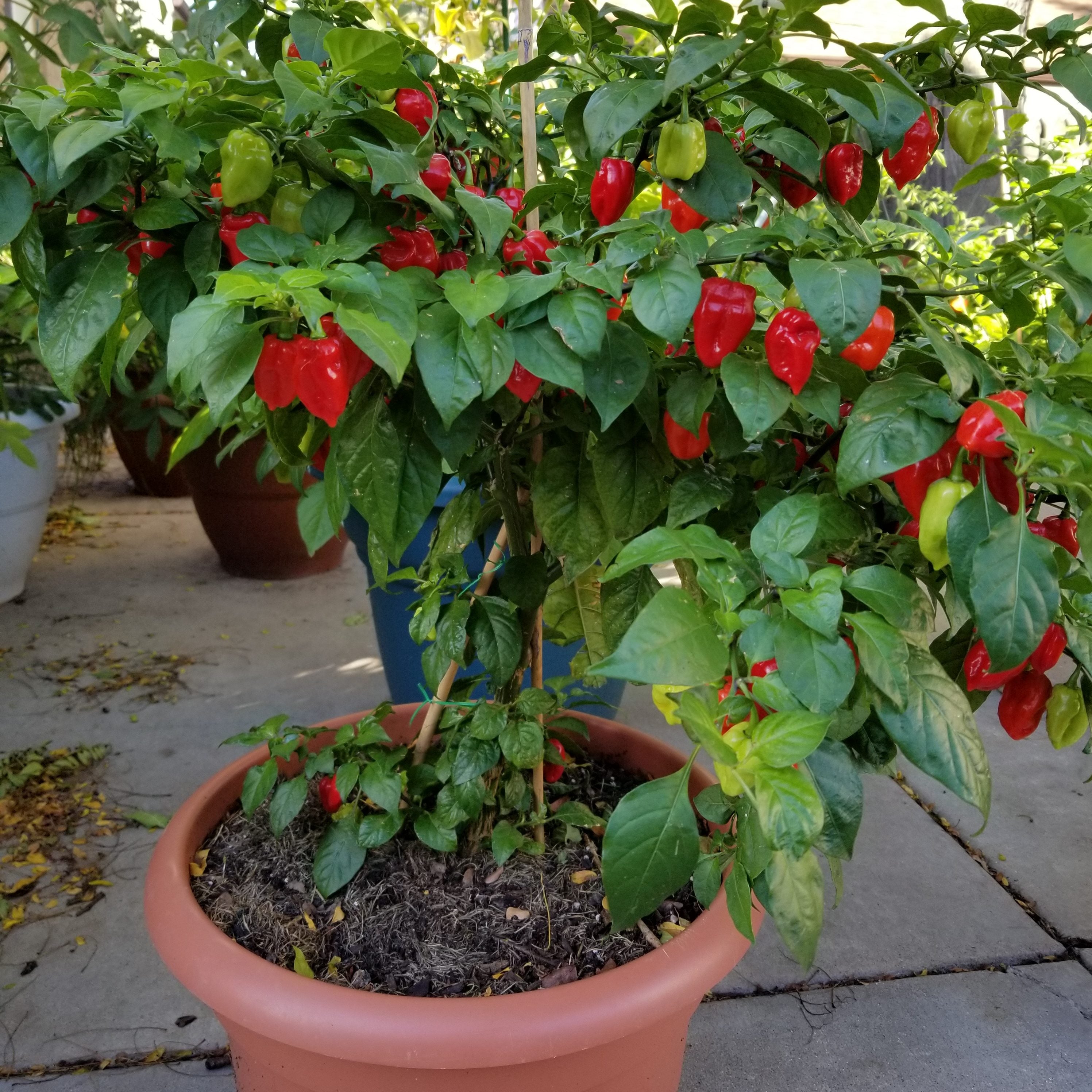Best Fertilizers for Peppers: A Comprehensive Overview to Boost Your Harvest
Best Fertilizers for Peppers: A Comprehensive Overview to Boost Your Harvest
Blog Article
Organic Vs. Synthetic Fertilizers: Which Is Best for Supporting Healthy And Balanced Pepper Plants?
In the realm of nurturing healthy pepper plants, the option between natural and synthetic fertilizers stands as an essential choice with far-ranging effects. While both alternatives objective to give necessary nutrients to sustain plant growth, the nuances of their influence on the dirt, plant health and wellness, and the setting spark a debate that mirrors throughout the gardening community. Comprehending the distinctive advantages and potential challenges of each fertilizer kind is crucial for pepper cultivators looking for to maximize their yields while preserving an eco-conscious and sustainable method.
Advantages of Organic Plant Foods
Organic plant foods offer an environmentally-friendly and sustainable approach to beneficial pepper plants, offering essential nutrients without using synthetic chemicals. These all-natural fertilizers are originated from organic sources such as compost, manure, bone dish, and algae, promoting soil health and wellness and biodiversity. Unlike synthetic fertilizers, organic options launch nutrients slowly, guaranteeing a stable and balanced supply for pepper plants to prosper.
One considerable benefit of organic fertilizers is their capacity to enhance dirt framework and water retention. By enhancing dirt wellness, organic plant foods promote advantageous microbial activity, which aids in nutrient uptake by pepper plants. Additionally, organic plant foods reduce the danger of chemical run-off, securing water resources from contamination and securing the environment.
Additionally, organic fertilizers contribute to long-term dirt fertility by promoting the development of helpful soil microorganisms. These organisms assist break down organic issue, releasing nutrients in a form that is quickly available to pepper plants. best fertilizers for peppers. By promoting a healthy and balanced dirt environment, natural fertilizers sustain sustainable pepper farming techniques that profit both plants and the environment
Disadvantages of Synthetic Fertilizers
Synthetic fertilizers, in contrast to their organic equivalents, pose various drawbacks when utilized to nourish pepper plants, impacting both plant health and ecological sustainability. One major downside of synthetic plant foods is their tendency to seep nutrients from the dirt quickly.
Furthermore, the overuse of artificial plant foods can add to water contamination. Excess fertilizers not absorbed by plants can get rid of into water bodies, leading to eutrophication, where algae blossoms diminish oxygen degrees in the water, damaging water life. Synthetic plant foods are typically acquired from non-renewable sources, such as fossil gas, adding to carbon discharges and environmental degradation during their manufacturing.
Nutrient Absorption Comparison
When contrasting organic and synthetic plant foods in terms of nutrient absorption, natural plant foods have the benefit of supplying an extra balanced and slow-release source of nutrients. Organic plant foods contain a variety of macro and trace elements that are not only beneficial for the plants however also promote healthy and their explanation balanced dirt microbial task, which helps in nutrient uptake.
Moreover, organic fertilizers improve soil framework and water retention ability, permitting pepper plants to gain access to nutrients extra efficiently. This better soil high quality helps with root advancement, enabling better nutrient absorption. Artificial plant foods, although at first boosting plant development because of their high nutrient concentrations, might impede long-lasting nutrient absorption by degrading soil health over time.
Environmental Influence Considerations

On the various other hand, artificial fertilizers, although typically even more focused and instantly readily available to plants, can have detrimental results on the setting if not used appropriately (best fertilizers look at here now for peppers). Their production calls for high power inputs, leading to greenhouse gas exhausts and contributing to environment modification. In addition, the drainage of excess artificial fertilizers can contaminate water sources, causing eutrophication and hurting water ecological communities.
Ideal Plant Food Practices for Peppers
To accomplish this, it is crucial to adhere to finest plant food techniques customized to the particular requirements of pepper plants. One crucial practice is to carry out a soil test prior to using any fertilizers.
An additional important practice is to fertilize pepper plants at the correct time. Usually, peppers take advantage of receiving plant food at planting and after that once again when they start to flower. Over-fertilizing can lead to vitamins and mineral imbalances and damage the plants, so it is important to follow recommended application prices.
In addition, picking a balanced fertilizer with an NPK proportion that matches pepper plants' demands is essential. Eventually, combining natural and synthetic fertilizers sensibly can aid support healthy pepper plants while reducing ecological impact.
Final Thought
:strip_icc()/BHG-Growing-Peppers-Indoors-EzgaEnB7KML9Ym_plkvuxK-9398f1341d86483083862533ae7622db.jpg)
Organic plant foods offer a lasting and environmentally-friendly technique to nourishing pepper plants, supplying necessary nutrients without the usage of synthetic chemicals. Unlike synthetic fertilizers, organic options launch nutrients slowly, making sure a balanced and constant supply for review pepper plants to grow.
Artificial fertilizers, in contrast to their natural counterparts, posture numerous disadvantages when used to nurture pepper plants, impacting both plant health and wellness and environmental sustainability. When contrasting artificial and organic plant foods in terms of nutrient absorption, natural fertilizers have the advantage of giving a much more well balanced and slow-release resource of nutrients.Moreover, organic plant foods improve soil structure and water retention ability, permitting pepper plants to gain access to nutrients a lot more effectively.
Report this page